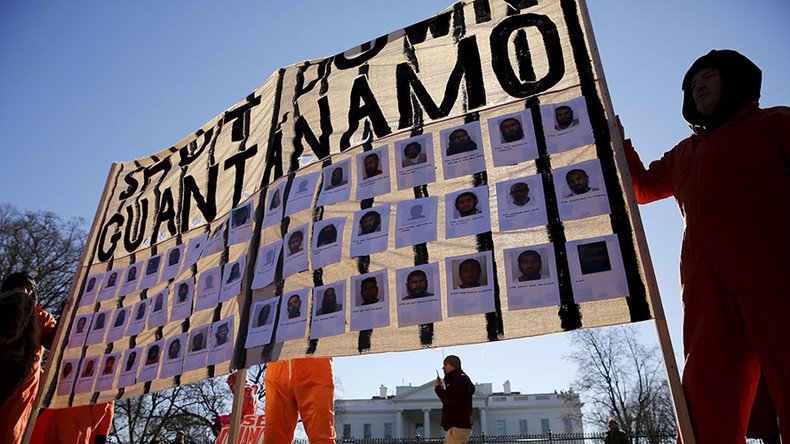Chances of Obama closing Gitmo slim to none – human rights lawyer

President Obama’s final year in office marks the Guantanamo Bay detention facility’s 15th year in operation. RT interviewed David Remes, a lawyer who has advised over a dozen Gitmo inmates, about the rising stakes facing the remaining prisoners there.
Remes, who left a lucrative position in corporate law in 2008 to pursue his newfound passion for defending human rights, told RT anchor Lindsay France that the chances of the prison camp being closed by the end of Obama’s term were slim to none.
“Of course, if a Republican becomes president, there is, I’d say, no hope that Guantanamo will be closed as a detention facility, so Obama’s plan is to transfer as many cleared detainees as he can,” Remes said. “That is, detainees who are approved for transfer, and to review as many uncleared detainees as possible, so that he can transfer those cleared detainees, also, abroad.”
“Those he can’t transfer, or doesn’t want to transfer, he wants to bring to the United States,” a move which Remes called “moving Guantanamo, not closing it.” Remes lamented that this idea was only “removing the symbol,” but “not removing what it symbolizes.”
Citing mounting political obstacles to a compromise strategy, Remes predicted that “this place is going to remain open no matter who is president.”
The question, Remes says, “is how many will be transferred after they’re cleared.”
It’s estimated that 91 detainees remain, 34 of whom have been cleared for transfer. However, the process of actually transferring them can take years.
“They are branded as terrorists, terrorists so terrible that they cannot even be held in supermax prisons, and the complete mythology has run up against them,” Remes said, while also noting that the transfer hearing processes have sped up recently.
“It started at a snail’s pace, but now, in his last year, Obama has made clear that he wants the review process to end toward the summertime, so that he can get on with the business of transferring cleared detainees to other countries.
“Right now, he is already accelerating transfers. He sent 10 detainees, including three of my clients to Oman this past month. He also sent another client of mine to Montenegro, and he’s going to be sending detainees to plenty of other countries, because the State Department has been just doing a magnificent job of negotiating transfer agreements with other countries,” Remes said.
US government fights to keep ‘disturbing’ force-feeding Gitmo footage secret
https://t.co/aSy9l88FxIpic.twitter.com/Zb05qLruY9
— RT America (@RT_America) January 22, 2016On the subject of interrogations, Lindsay France asked for Remes’ opinion on developments in the relationship between the CIA and the American Psychological Association. In the wake of the CIA torture scandal, the APA ruled its members would be violating their ethical obligations by participating in CIA and Pentagon interrogations. The Pentagon has said more recently that it has learned its lesson and urged the APA to rejoin its efforts.
“This stuff about lessons learned, I have not often seen the Pentagon learn from its mistakes, but to repeat them over and over again,” Remes said. “In any event, how will we know that they’ve learned their lesson or are doing the right thing going forward, even if the American Psychological Association allows their members to participate?”
“By the time we found out what happened, it would be too late. And just look at the track record. I don’t think we can trust a single thing the Pentagon says on the question of Guantanamo.”
Guantanamo prisoner held for 13 years on mistaken identity cleared for release
https://t.co/zDZhWFWMqipic.twitter.com/0mCirahUkt
— RT America (@RT_America) January 22, 2016On the possible potential release of videos or photos of Guantanamo guards force-feeding hunger-strikers, Remes said, “The case for keeping them secret is a case for hiding government abuse and sparing the government of embarrassment. That’s never a justification.”
“It’s also claimed that if these photos or tapes are released, it will somehow weaken the morale of the agents of the federal government, of the intelligence services, the defense people, but what that really means is, is that the greater the abuse, the greater case for keeping the abuse secret,” Remes added.












